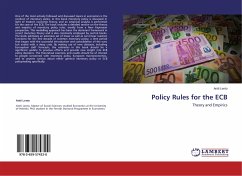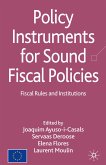One of the most actively followed and discussed topics in economics is the conduct of monetary policy. In this book monetary policy is discussed in light of modern economic theory, and an empirical analysis is performed for the case of the ECB. The book includes a detailed section on the theory and empirics of monetary policy rules, mostly from a New Keynesian perspective. This modelling approach has been the dominant framework in recent monetary theory and is also commonly employed by central banks. The book estimates an extensive set of linear as well as non-linear reaction functions for the first decade of common monetary policy; a time period that began with the successful introduction and consolidation of the euro but ended with a deep crisis. By making use of new datasets, including Eurosystem staff forecasts, the estimates in this book should be a significant update to previous efforts and provide new insight into ECB policy decisions. The theoretical overview and results should be of interest to people concerned with monetary policy, European macroeconomics, and to anyone curious about either general monetary policy or ECB policymaking specifically.
Hinweis: Dieser Artikel kann nur an eine deutsche Lieferadresse ausgeliefert werden.
Hinweis: Dieser Artikel kann nur an eine deutsche Lieferadresse ausgeliefert werden.








